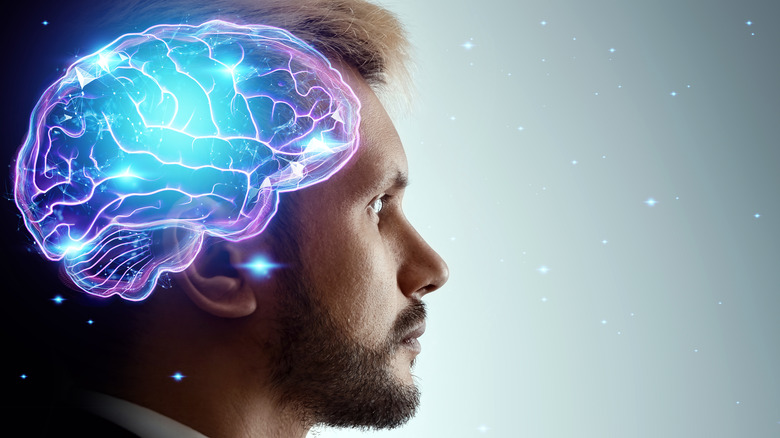Drinks That Could Be Aging Your Brain Faster
When you hear that something is aging your brain, fear and curiosity tend to force you to pay attention. The truth is, however, that this may be more common than you think. According to Medical News Today, natural aging takes a toll on the brain just as it does on the rest of the body. The brain undergoes changes over time that include shrinkage of the hippocampus, frontal lobe, and myelin that makes up white matter, as well as a decline in chemical messengers and synaptic connections. Gradually, these changes will negatively impact memory, thought processing, and mood management.
Although you can't change how old you are, you can mitigate the effects of aging on the brain. Some activities, like exercise and playing an instrument, can slow the aging process, while others can make aging worse.
What we put into the body is one factor that directly determines the severity of the symptoms of aging. Eating healthy isn't just about losing weight; certain foods can have a lasting effect that may impact your quality of life when you're older (via Office of Disease Prevention and Health Promotion). When it comes to drinks, three popular choices can lead to your brain aging faster.
Drinks that may affect brain health and aging
Soda is a popular drink, but its draw usually comes from the high amounts of sugar it contains. While sugar is known to be detrimental to dieting and blood sugar levels, it has also been linked to an increased risk for dementia (via Healthline). Additionally, Alzheimer's & Dementia published a study that found that those who drank a sugary beverage regularly had lower brain volume and were at higher risk of Alzheimer's disease. As with natural aging, in Alzheimer's disease, the brain shrinks. Therefore signs of Alzheimer's and lower brain volume directly indicate brain aging (via National Institute on Aging).
Diet soda may seem like a better option since it has less sugar than regular soda. However, while less sugar is a benefit, diet soda's other ingredients may have their own health consequences (via Medical News Today). A 2017 study published in Stroke found that daily consumption of diet soda led to a severely increased risk of dementia, Alzheimer's disease, and stroke. Alzheimer's disease is the most common type of dementia, according to Mayo Clinic.
Alcohol causes dehydration and inflammation, can affect the circulatory system, and can impact blood sugar. Despite these known effects, some say alcohol can be beneficial in moderation (via Healthline). Unfortunately, a study published in Nature found that drinking alcohol, even in moderate amounts, appears to decrease brain matter. This decrease is similar to brain shrinkage from aging, and the impacted areas affect memory and cognitive functions.


